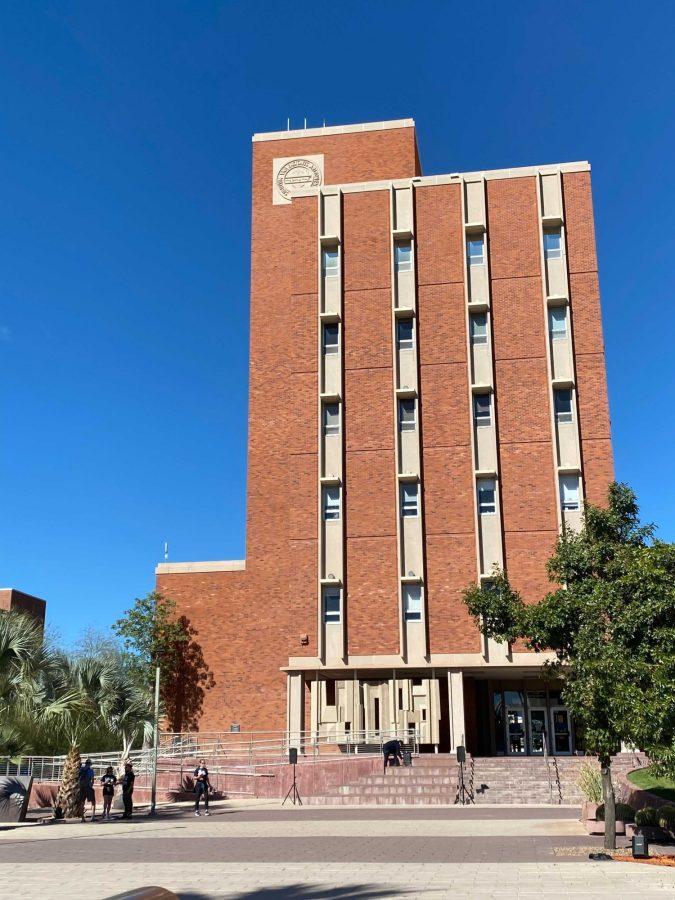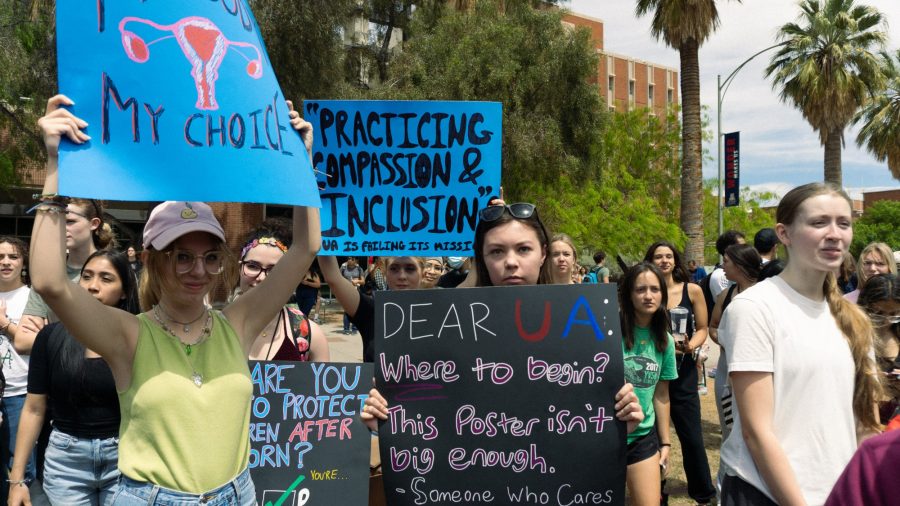Many attribute the optimism toward the conditions of Rep. Gabrielle Giffords and other victims of Saturday’s shooting to the expertise of University Medical Center’s physicians.
Giffords and 10 other patients were sent to the UMC trauma center on Saturday. Nine-year-old Christina Green was pronounced dead upon arrival.
Michelle Ziemba, director of trauma and emergency services at UMC, said the trauma center has handled up to 22 victims from a single event.
“”This wasn’t anything that we haven’t had before,”” Ziemba said.
Ziemba said she was called into the trauma center on Saturday morning but was not aware of the nature of the incident.
“”I was taken aback by the number of law enforcement security there,”” said Ziemba, who later heard Giffords was among the injured. “”The big thing we’re dealing with is the security measures that we have to take, and the media and the press coverage.””
Several of the victims were originally brought to Northwest Medical Center. The hospital called in extra staff for their arrival, according to Alex Kotonias, a transporter at Northwest Medical Center and student at Pima Community College.
“”The emergency room was pretty crazy,”” Kotonias said. “”I couldn’t see much walking by. Just a bunch of people standing over patients trying to fix them up.””
Kotonias, who had a class with accused shooter Jared Loughner, said the emergency and operating rooms were hectic.
“”It definitely had that disaster feel to it,”” Kotonias said. “”A lot of them (the victims) were only there for a short while, then they picked them up and took them to UMC.””
UMC is the only hospital in Southern Arizona to have a level-I trauma center, which is the top designation for comprehensive trauma care.
“”The scope and capability of our trauma program is that if something can’t be taken care of here, it can’t be taken care of anywhere else either,”” Ziemba said. “”Being a level-I trauma center allows us the highest level of trauma-care capabilities.””
Ziemba said this designation made UMC well equipped to handle Giffords’ gunshot wound.
“”We get gunshot wounds to the head on a routine basis,”” Ziemba said. “”It’s just the unpredictable nature of traumatic brain injury. No one has mastered that yet. None of us have that magic ball or predictor to see how well someone is going to do. That’s why this watching-and-waiting game is so important.””
UA President Robert Shelton said the success of this medical care is the result of recruiting top faculty, physicians and specialists.
“”Every member of the hospital, the College of Medicine, UA health care teams, whether it has been the administrative side, or, most importantly, the trauma side, they have been just extraordinary,”” Shelton said. “”It’s a reflection, once again, of how attracting and retaining quality individuals is the most important thing we do.””
Tucson is fortunate to have a dedicated trauma center, Ziemba said.
“”Everyone kind of takes them for granted,”” Ziemba said. “”But when you really need one, people really appreciate that they’re there.””
Counseling and Psychological Services is reaching out to students who may be distressed by Saturday’s shooting.
Glenn Matchett-Morris, assistant director of Counseling and Psychological Services, said some anxiety is normal after such events.
“”There’s almost secondary trauma that can occur hearing about it and seeing pictures,”” Matchett-Morris said.
People may be distressed even if they were not directly effected.
“”It can create a lot of uncertainty and fear about the things that happen in life that we have no control over,”” he said.
Matchett-Morris said people should seek help if their distress interferes with sleep patterns, eating habits, school or relationships.









